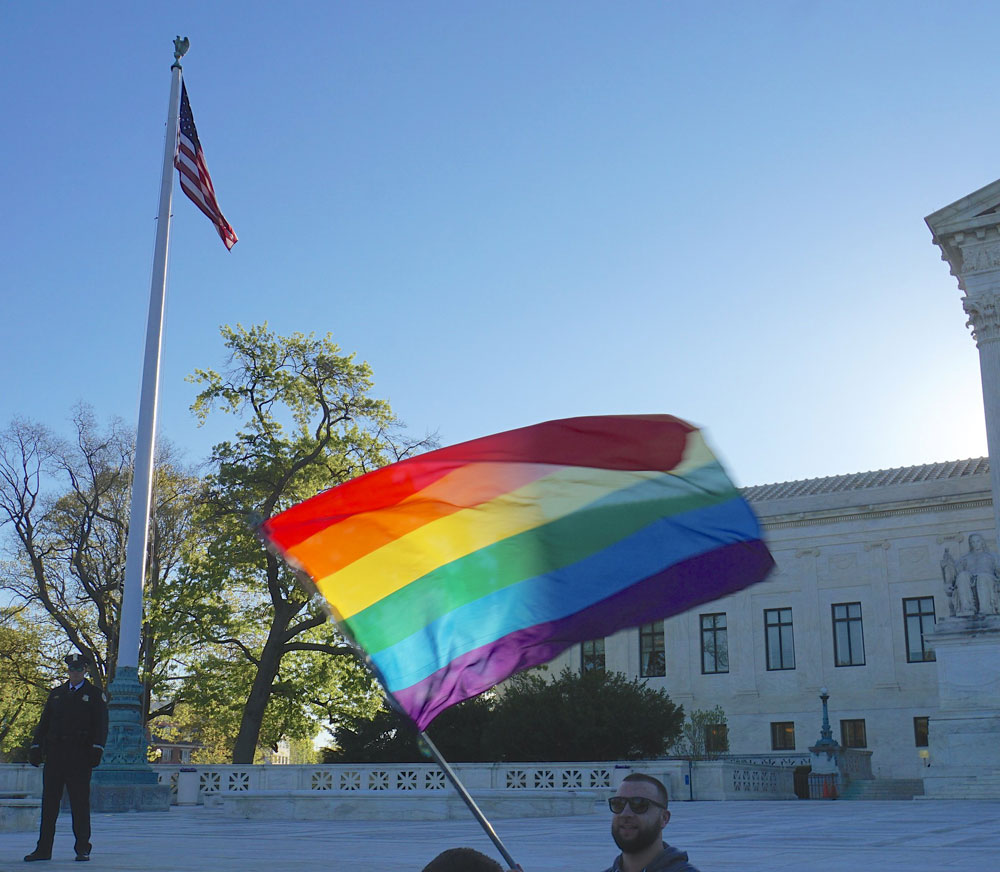
November 4, 2019; Colorlines
A reminder of how vigilant we must all be about regulatory maneuvering comes in the form of one more federal challenge to LGBTQ+ rights. As reported by Colorlines, a new regulatory initiative being advanced by the Trump administration, although billed as a push for free speech for religious communities, seems to have potentially more far-reaching consequences.
In December 2016, at the end of President Obama’s administration, the US Department of Health and Human Services (HHS) issued a new regulation that barred any organization receiving HHS grants or contracts from discriminating against any same-sex couple that has been legally married. Now, HHS says it will not enforce this regulation and will “repromulgate,” or revise and republish it.
HHS says this decision not to enforce the legislation “represents the Trump Administration’s strong commitment to the rule of law―the Constitution, federal statutes, and Supreme Court decisions. These require that the federal government not infringe on religious freedom in its operation of HHS grant programs.”
For the moment, then, it would seem that religious organizations administering HHS grants and programs have the right to refuse to serve any person in the LGBTQ+ community. This will be accomplished at first simply by not enforcing the Obama-era ruling, but HHS will move to make this permanent by rewriting the regulation.
In and of itself, this represents yet another form of “faith-based” discrimination against the LGBTQ+ community that is being legitimized by the Trump administration. But the rabbit hole does not stop there; in fact, it would appear the new ruling cuts a far wider swath across what we had all thought were now commonly accepted, constitutionally based rights of all citizens.
Sign up for our free newsletters
Subscribe to NPQ's newsletters to have our top stories delivered directly to your inbox.
By signing up, you agree to our privacy policy and terms of use, and to receive messages from NPQ and our partners.
To explain this, we turn to two documents issued by HHS about the nonenforcement and proposed repromulgation. Colorlines focuses on the potential to prevent same-sex couples from adopting. However, the original Obama-era regulation and the notice of proposed rulemaking that was released by HHS refer to discrimination by any organization administering any HHS funded program. So, the impact extends far beyond adoption.
Similarly, although HHS justifies its action in the name of religious freedom, in fact, according to the Notice of Nonenforcement, any organization that is included in the Small Business Administration’s definition of “small entity” is affected. According to the Notice of Nonenforcement, the definition includes: “(1) a proprietary firm meeting the size standards of the US Small Business Administration (SBA)1 ; (2) a nonprofit organization that is not dominant in its field; or (3) a small government jurisdiction with a population of less than 50,000.”
With the nonenforcement ruling, any of these entities are now able to refuse to include married same-sex couples in any HHS-funded program.
The rationale HHS uses for allowing the nonenforcement is that the Obama-era ruling was not vetted appropriately and represents an undue burden on small businesses. HHS cites one case in which a religious organization has requested an exception to the ruling that was granted but is now being challenged in court. Since then, other agencies have said that if they were required to enforce the original ruling, they would rather cease providing the services.
Specifically, HHS wants to rewrite the regulation to state that its implementation of nondiscrimination will be based on all decisions by the Supreme Court. With decisions like the recent Masterpiece Cakeshop case, which allowed a business to discriminate based on the beliefs of the owners, this could be a very wide-reaching maneuver.
Once the HHS rulings are published at the Federal Register, there is a 30-day comment period and an effective date for the rule unless there is a legal challenge. We can only hope.—Rob Meiksins













